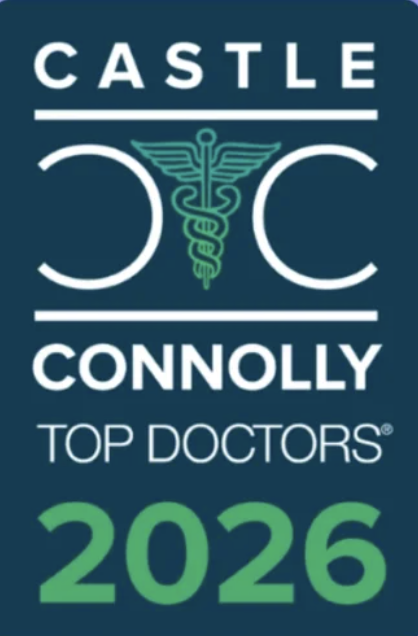The FDA Helps Bring Greater Attention to Sleep Apnea with Zepbound
.png)
By Jordan Stern, CEO and Medical Director
The FDA granted Eli Lilly an early holiday gift in 2024 – The fast-track approval of the popular GLP-1 weight-loss drug Zepbound (tirzepatide) for the treatment of moderate to severe obstructive sleep apnea (OSA) in adults with obesity, to be used in combination with a reduced-calorie diet and increased physical activity.
We’re excited that the FDA and Eli Lilly have put the spotlight on the dangers of sleep apnea, a life-threatening disease affecting over 30 million adults in the US and close to one billion worldwide. The sad truth is that, in the US, 80% of people with sleep apnea remain untreated for the disease. Greater attention on sleep apnea is a big win for the country’s health.
The FDA reported that clinical studies showed that research participants (all with Type II Diabetes) treated with Zepbound had a significant decrease in body weight compared with placebo at 52 weeks. According to the FDA, the improvement in AHI in participants with OSA is likely related to body weight reduction with Zepbound. The apnea hypopnea index (AHI) is a measurement of how many times a person stops breathing (apnea) or breathes shallowly (hypopnea) per hour during sleep.
The FDA was so confident in Zepbound’s results that it received “Breakthrough Therapy” status. No doubt other manufacturers of GLP-1 drugs like Mounjaro, Ozempic, and Wegovy are lining up for similar approvals and extending approvals for other diseases correlated with weight gain.
Given that obesity is associated with so many other health problems, we can expect that the pharmaceutical companies will seek a similar, wonderdrug blessing from the FDA for the GLP-1’s ability to improve cardiovascular diseases; metabolic and respiratory disorders; musculoskeletal disorders; cancers; digestive disorders; neurological conditions; reproductive and hormonal issues; mental health disorders; skin conditions and immune system impairment.
Does Zepbound Cure Sleep Apnea?
No. GLP-1 drugs help reduce weight which can exacerbate sleep apnea. People taking Zepbound with severe apnea may reduce the AHI severity to moderate apnea, but their OSA doesn’t disappear. Those with moderate or mild apnea may still show the same AHI after treatment. It's important to understand that weight loss alone does not guarantee the resolution of sleep apnea. We recently encountered a patient who lost 70 pounds, yet their AHI remained unchanged. This highlights the fact that factors beyond weight, such as anatomical abnormalities and genetic predispositions, contribute to the development and persistence of OSA.
How to start treatment for sleep apnea?
If you’re considering Zepbound or other GLP-1’s to lose weight, and stop snoring and sleep apnea, we recommend you start with a home sleep test to get a baseline for the severity of your condition. Weight loss takes time–even the FDA’s research lasted for 52 weeks. If you test positive for sleep apnea and are taking Zepbound in combination with a reduced-calorie diet and more exercise, we highly recommend you immediately start non-drug treatment–oral appliance therapy or CPAP–while you lose weight. Delaying treatment may lead to increased risk of heart disease or other problems.
Will Insurance Cover Zepbound for Sleep Apnea?
Insurance companies generally take 1-3 years after FDA approval to cover a drug for a specific disease. Patients interested in coverage for Zepbound will likely need to meet a medical standard for obesity (BMI over 30), or perhaps the standard for overweight (BMI over 25). While insurers generally don’t like covering drugs, the long-term return on investment for GLP-1s is positive, helping to reduce more serious and costly health problems. These drugs are still new and come with side-effects that cause other medical problems, so the insurers are likely to remain cautious.
Zepbound Has Some Drawbacks
Aside from having to inject themselves weekly with Zepbound, some patients incur side-effects such as nausea, diarrhea, vomiting, constipation, abdominal (stomach) discomfort and pain, injection site reactions, fatigue, hypersensitivity (allergic) reactions (typically fever and rash), burping, hair loss and gastroesophageal reflux disease. Also, 66% of patients regained weight after stopping treatment, so it’s best to start on oral appliance or CPAP therapy.
Who Will Benefit from the FDA’s Approval of Zepbound
The FDA's approval of Zepbound for treating moderate to severe obstructive sleep apnea (OSA) in adults with obesity is poised to benefit patients with other health problems associated with sleep apnea such as heart disease, high blood pressure, and mood disorders such as anxiety and depression. It is not yet known when health insurance companies will start covering Zepbound for the treatment of sleep apnea; but BlueSleep is already collaborating with online weight loss services such as Shapely.












